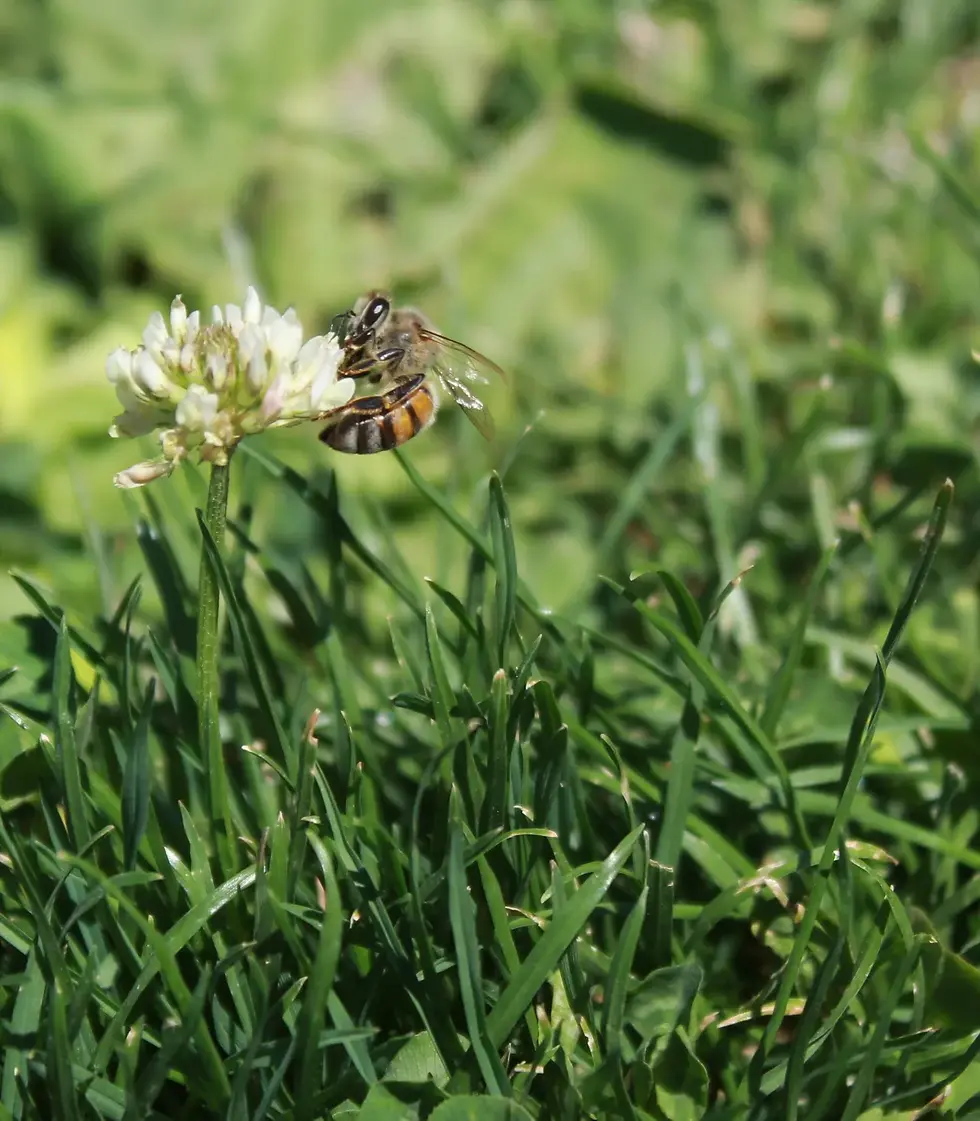How Bees and Clover Help Each Other Thrive
- Pete Rizzo

- Apr 25, 2024
- 4 min read
Updated: May 5, 2025

The Fascinating Connection Between Bees and Clover
Bees and clovers have a connection that often goes unnoticed but plays a crucial role in our environment.
Clover, with its distinctive three-leaf structure and clusters of small flowers, might seem like just another plant, but it's actually a powerhouse in the natural world.
Since we have clover scattered across our Las Vegas school playfield, I decided to take a student on a mini-exploration to learn more about bees and their connection to these plants.
The student managed to capture some fantastic photos of the bees in action, which you can see throughout this article.

The Natural Wonder of Clover
Clover belongs to the legume family, which means it has a special ability to enrich the soil by pulling nitrogen from the air and storing it in the ground.
This makes clover incredibly valuable for farmers, as it improves soil health and fertility without the need for synthetic fertilizers. This is just one of the reasons we grow clover in our backyard garden.
The Allure of Clover for Honeybees
But what's really interesting is how bees interact with clover. Clover flowers produce abundant nectar, making them a favorite stop for bees in search of food.
The nectar produced by clover is rich in sugars, providing bees with a high-energy fuel source for their demanding activities.
Additionally, clover pollen is highly nutritious, providing bees with proteins and other nutrients necessary for their growth and development.

How Bees and Clover Work Together
As bees visit these flowers, they transfer pollen from one flower to another, which is needed for the plants to reproduce and produce seeds. This mutual exchange benefits both bees and clover plants alike.
The Delights of Clover Honey
For beekeepers, clover is like a treasure trove. When clover is in bloom, honeybees flock to it, collecting nectar and producing delicious clover honey.
Delicate Flavor Profile: One of the main features of clover honey is its delicate flavor. With subtle floral notes and hints of vanilla, clover honey offers a mild and pleasant taste that appeals to a wide range of palates.
Light Color: Clover honey is known for its light color, ranging from pale gold to translucent amber. This light hue is characteristic of clover nectar and contributes to the honey's visual appeal.
Slow Crystallization Rate: Unlike some other types of honey, clover honey crystallizes slowly. This means it remains liquid and pourable for an extended period.
Versatile Culinary Ingredient: Clover honey's mild flavor and smooth texture make it a versatile culinary ingredient. It can be used as a sweetener in beverages such as tea and coffee, served with pancakes and yogurt, or incorporated into salad dressings and marinades for a touch of sweetness.
Nutritional Benefits: Like all types of honey, clover honey offers various nutritional benefits. It contains natural antioxidants, enzymes, vitamins, and minerals, making it a wholesome addition to a balanced diet.
Popular Choice Worldwide: Clover honey is widely available and popular worldwide thanks to its appealing flavor profile and culinary versatility. It's a staple in many households and is often used as a primary sweetener in some commercial food products.
Harvested During Clover Bloom: Beekeepers typically harvest clover honey during the peak blooming period of clover flowers. This ensures that the honey captures the full essence of clover nectar, resulting in its characteristic flavor and aroma.

The Importance of Bees for Clover
But beyond these rewards, bees play an important part in the diversity of clover populations.
By moving pollen between different clover plants, bees promote genetic diversity, which is important for plant populations' resilience.
Clover fields also provide important foraging habitats for bees, especially in urban areas where green spaces are limited. In Las Vegas, clover seems limited to school fields and parks.
When we plant clover in gardens and parks, we can create welcoming environments for bees and other pollinators, supporting their populations.

In the End
The relationship between bees and clover is another example of nature's interconnectedness. By appreciating and nurturing this relationship, we can help protect and preserve the clover patches and honeybees for generations to come.
These pictures were taken by one of Pete's third-grade students. She did a great job, and we thank her for the beautiful bee pictures.
Betsy and Pete
Vegas Bees
Las Vegas, Nevada
About Us: The Authors

We're Betsy and Pete, passionate Las Vegas beekeepers trained by a master in the field. With hundreds of successful bee and bee swarm removals under our belts, we're not just experts; we're enthusiasts committed to the well-being of these incredible pollinators.
We manage dozens of beehives, both natural and honey-bearing at our Joshua Tree Preserve.
Our Commitment to Excellence
Education is an ongoing journey, especially in a dynamic field such as beekeeping. That's why we continually update our knowledge base, collaborate with other experts, and stay up to date with the latest advancements in bee control methods and beekeeping practices.
We also provide top-tier beekeeping supplies, offering everything a beekeeper needs, from beginners to experts.
.png)


